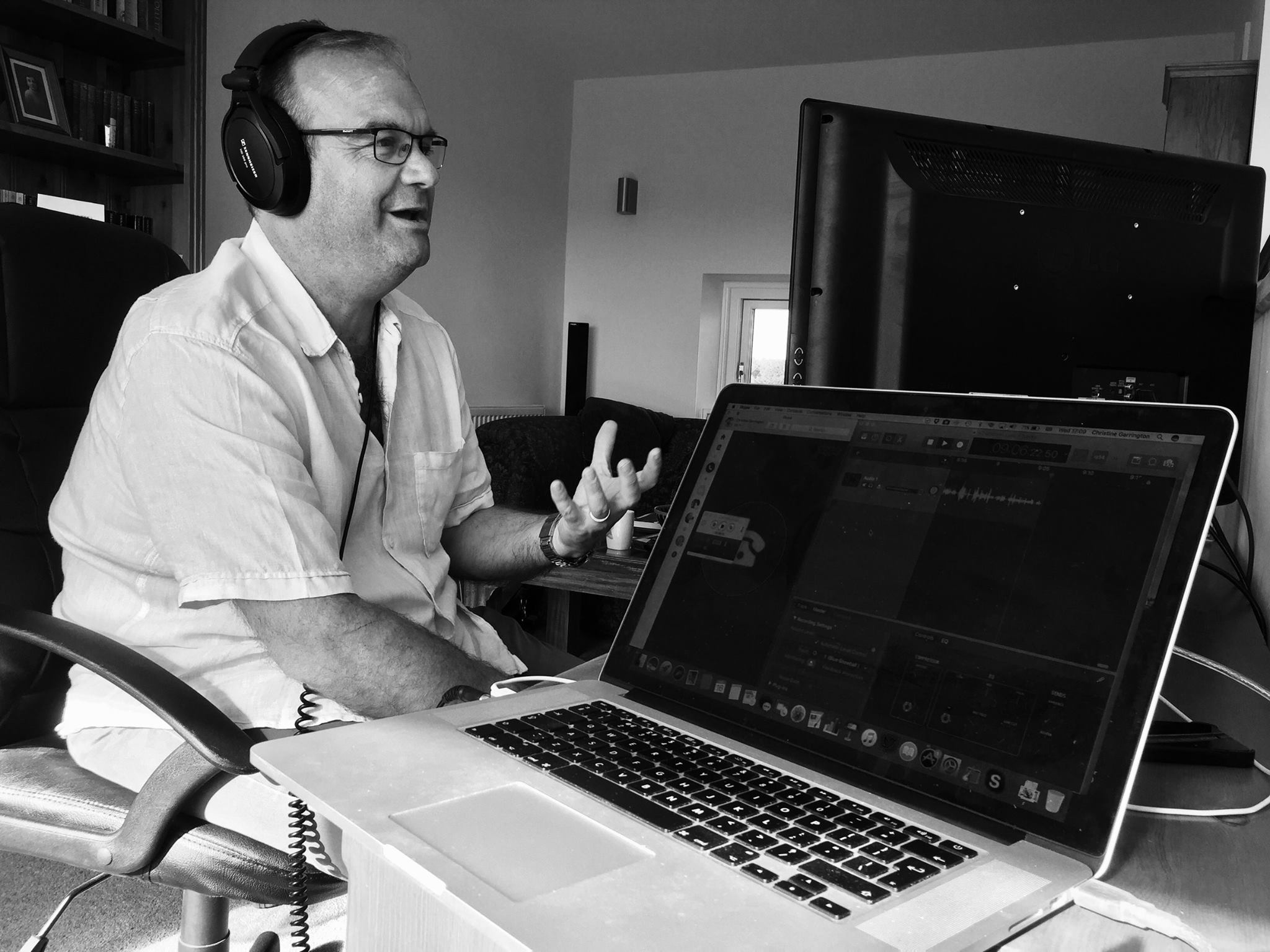
November 25, 2017, by Rights Lab
Sound Evidence to End Slavery
There are 40.3 million people enslaved around the world today, a shocking figure that, in recent times, has given birth to a renewed global commitment to end modern slavery. Ending slavery by 2030 is now a key Sustainable Development Goal target and slavery is a focus for the UK government.
There can’t be many people who would disagree with the ambition of ending slavery, but it’s essential we don’t just look for quick wins in the form of urgent liberations and prosecutions. We need to use robust, evidence-based strategies for whole-scale abolition. In that way, we get our thinking on the right track about the issue, understand the problem, and help create meaningful and effective solutions.
One method for shaping and disseminating those strategies is through podcasting. Giving a clear voice to sound evidence on human rights has been the ambition over the last two years of The Rights Track, a podcast with the principal ambition of getting the hard facts about the human rights challenges facing us today.
On the UK’s Anti-Slavery Day, October 18, I therefore announced that the attention of The Rights Track podcast is turning exclusively to the challenge of modern slavery, and is now positioned at the heart of The Rights Lab, the world’s first large-scale research programme aimed at ending slavery.
Why a podcast?
Continuing to spread the word as widely as possible will be key to achieving the end goal of a slavery-free world. Digital and social media provide a host of opportunities to share the evidence being developed in ways that blur the distinction between academic outputs and the work of human rights practitioners, and which fulfil an ever-increasing demand for rigorous evidence from human rights organisations.
Over the last few years, there has been a growing interest in the production and consumption of podcasts. In 2013, Apple announced it had over a billion podcast subscribers spread across 250,000 unique podcasts in more than 100 languages, and that more than 8 million episodes have been published in the iTunes Store to date. In 2016 The Economist proclaimed the podcast had come of age, and 2017 was declared the Year of the Podcast.
Audience research figures in the US estimate that 112 million people have listened to a podcast at least once. 67 million are listening to podcasts every month, 42 million every week. Those listening on a weekly basis listen, on average, to five different podcasts. In the UK, podcasts have also grown in popularity. In 2015, one in five people reported ever downloading a podcast. Although fewer than one in ten people listen every week, those who do consume an impressive 6.1 hours per week.
Discussion about whether podcasts can start to take hold in countries such as India, where slavery is a major problem, but where there is little or no culture of listening to talk radio is also beginning to emerge.
There has never been a better or more exciting time to be podcasting and to be using podcasts not just to share research findings but to really engage with everyone who is interested in understanding what’s needed for change and, in this case, in taking individual and collective responsibility for ending slavery
Getting our thinking on the right track
From how many slaves exist in the world and where they are, to why slavery exists and persists, what can work to end it, and the difference that freedom makes – there is plenty for us to talk about on The Rights Track.
We’ll be talking to team leads and external partners from the Rights Lab about their ongoing work, ranging from making UK cities slavery-free to observing slavery from space using the latest cutting-edge satellite technologies, as well as work on how to assist survivors of slavery.
The research and our podcast are all underpinned by something I call “rigorous morality”; a fusion of rigorous empirical research and advocacy. This values-based, problem-oriented approach means that we’ll do more than just talk about the problems of modern slavery, we’ll give a voice to the evidence and the solutions, change the conversation and, in doing so, help to set society on a course to end it.
The fact that podcasting can help capture these stories, ideas and voices in such a compelling way is why we believe it is key to our research programme. Slavery stands on the edge of its own extinction and we want to bring research rigour to a global community that has awoken to the historic possibility of ending slavery in our lifetime.
Can a podcast help with that? We think it can! Episode 1 was published on November 9, episode 2 is due out in December.
Professor Todd Landman is the Pro Vice Chancellor for the Faculty of Social Sciences at the University of Nottingham, and a leading expert on the measurement and analysis of human rights. He is the Executive Director of the Rights Lab, a University of Nottingham Beacon of Excellence, and leads its monitoring and evaluation work. You can subscribe to his podcast and join the conversation on Twitter @RightsTrack
No comments yet, fill out a comment to be the first

Leave a Reply